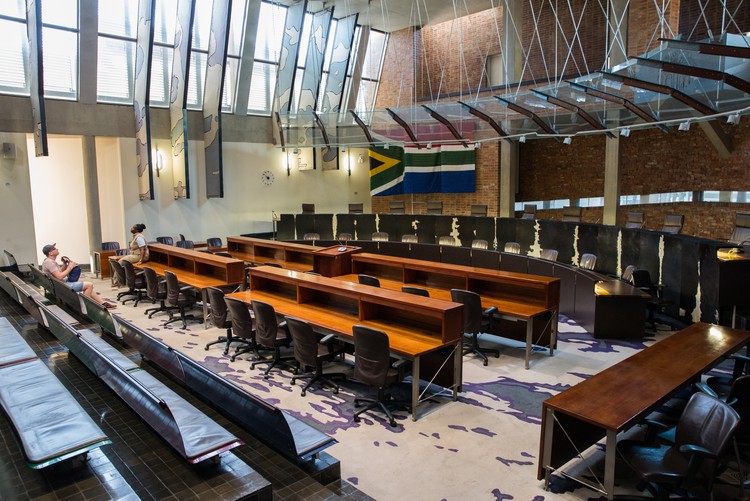
The Constitutional Court has declared section 1(1)(b) of the Intimidation Act of 1982 unconstitutional and invalid because it unjustifiably limited the right to freedom of expression. Archive photo: Ashraf Hendricks
22 October 2019
In a unanimous judgment, read by Justice Leona Theron on Tuesday, the Constitutional Court declared Section 1(1)(b) of the Intimidation Act of 1982 unconstitutional and invalid because it unjustifiably limited the right to freedom of expression.
The section of the Act states that persons will be guilty of an offence if they act in a manner or utter words that have the effect, or might reasonably be expected to have the effect, that another person fears for their own safety, the safety of their property or that of a third party.
The court said the key issue was whether the section was unconstitutional because it unjustifiably criminalises expression that is protected by the Constitution.
The court said that the section of the Act was too broad because it relied solely on the experience of fear by another person.
“For example, the act of handing out fliers advocating for expropriation of land without compensation in a libertarian suburb could, all things considered, lead to a charge of intimidation. This is because such an activity would, in all likelihood, be fear-causing,” read the judgment.
It said such an infringement on freedom of expression and the political rights that come with it could never be justified.
The case arose from an incident when General Alfred Moyo, an activist in Makause informal settlement east of Johannesburg, was arrested for what the police deemed to be threatening and violent conduct towards them.
Moyo’s battle started in 2012, when he was involved in planning a march against police brutality at Primrose Police Station in Germiston. The march was organised to show solidarity with the victims of the Marikana Massacre and to raise issues about poor policing.
Days before the scheduled date of the march, the police and representatives of the organisers held a meeting at the station. According to the police, Moyo told them that “there will be bloodshed”, that he would make sure that they were removed from the station, and charged towards the police, pointing fingers at them.
Moyo denied saying or doing anything with the intention to create fear, threaten or intimidate the police. But the police, claiming they feared for their lives, arrested Moyo and charged him with intimidation under Section 1(1)(b) of the Intimidation Act.
The application to have a section of the Act struck down was heard in the Constitutional Court in February 2019. Moyo was represented by the Socio-Economic Rights Institute (SERI) and the Centre for Applied Legal Studies (CALS).
Stuart Wilson, the advocate from SERI, argued in the Constitutional Court that the wording of the Act was too broad and infringed on the right to freedom of expression. He argued that even if no fear was created, an accused could be convicted under the Act if the speech or conduct had the potential to create fear.
The State disagreed with SERI’s interpretation, arguing that a mere allegation of fear would not lead to a conviction. The State argued that the trial court would consider the consequences of the alleged act of intimidation and decide if there were reasonable grounds for fear or not.
Moyo told GroundUp that the judgment was a victory not only for himself, but for the organisers of the protest and the community at large. The judgment applies retrospectively to any pending matter involving a charge under the Act that has not been finalised on appeal.
“This case has been going on for seven years so I’m very relieved that it is finally over … I am one of the fortunate ones because we managed to challenge the unconstitutionality of the act before I was sentenced, but others are still victims of apartheid laws … and are currently sitting in jail,” said Moyo.